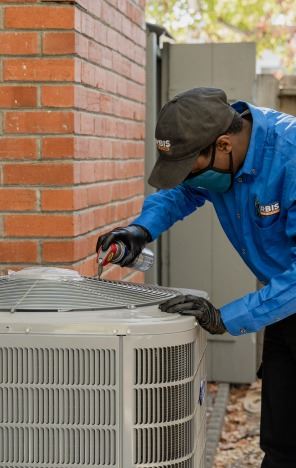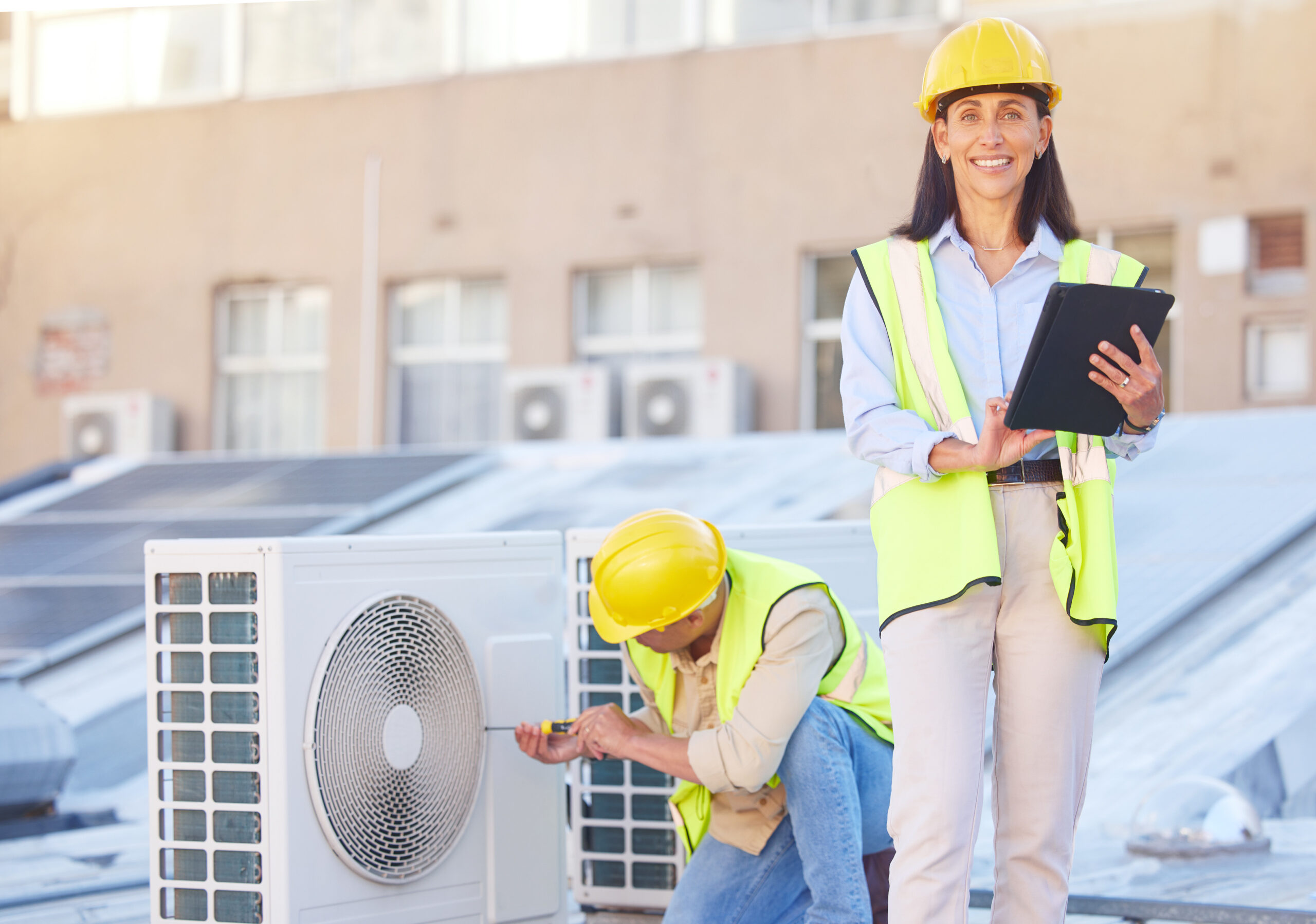How to Extend HVAC Lifespan Through Consistent heat pump service
How to Extend HVAC Lifespan Through Consistent heat pump service
Blog Article
Picking In Between a Heat Pump and Furnace: Secret Considerations for Your HVAC Requirements
When examining heating options for HVAC requires, the decision in between a warmth pump and a heating system can be complex. Each system uses distinctive benefits tailored to details environments and energy efficiency objectives. Recognizing these differences is crucial for making an educated choice. Trick aspects such as installation prices and environmental impact better complicate the selection procedure. Which option absolutely lines up with one's convenience and sustainability preferences? The adhering to sections will certainly explore these factors to consider carefully.
Understanding Warm Pumps: How They Function and Their Benefits
While lots of homeowners take into consideration various home heating options, understanding how heatpump feature and their advantages can significantly affect their decision. Heatpump operate by moving heat as opposed to producing it. In the winter, they draw out warmth from the outside air or ground and transfer it inside, while in the summer, they reverse this process, cooling down the home by expelling warm outside. This double functionality makes them versatile for year-round environment control.One of the key benefits of heat pumps is their energy performance. They make use of considerably less electrical energy contrasted to conventional furnace, possibly causing lower utility bills (heat pump replacement ooltewah tn). Additionally, heat pumps have a smaller carbon footprint, making them an eco-friendly selection. They additionally call for much less upkeep than traditional systems, adding to long-term price savings. Overall, recognizing the mechanics and advantages of heatpump can assist homeowners make informed decisions regarding their home heating and cooling demands
Checking Out Furnaces: Kinds, Procedure, and Benefits
Heaters come in different kinds, consisting of gas, electrical, and oil models, each with distinct functional systems. Recognizing these distinctions is crucial, as they influence performance and home heating performance. Additionally, heaters use many benefits, such as consistent warmth result and dependability in chillier climates.
Sorts of Heaters
Heating unit can differ considerably in design and procedure, with heating systems being a prominent choice amongst house owners. There are a number of kinds of heaters, each using different gas resources and technologies. Gas heaters are typical, leveraging natural gas to generate heat successfully. Electric heating systems, on the other hand, make use of electric resistance to create warmth, often preferred for their straightforward installment. Oil furnaces, while much less common, are reliable in areas with minimal gas access (ductless mini splits). Furthermore, condensing furnaces maximize power performance by catching and recycling exhaust gases. Each kind runs through a system of warm exchangers and ductwork to disperse warm air throughout a home. Comprehending the differences between these heating system kinds is important for educated heating and cooling decisions
Benefits of Heating systems
For home owners seeking trustworthy warmth during chilly months, the benefits of heaters are substantial. Furnaces offer regular home heating, making certain even temperatures throughout the home. They are especially efficient in severe cool, often outmatching heat pumps in frigid conditions. Different types, consisting of gas, electrical, and oil heaters, supply flexibility to meet diverse needs and preferences.Furnaces also have a tendency to have lower preliminary setup expenses contrasted to heatpump, making them an extra obtainable option for several. Their durable layout adds to a much longer life expectancy, with lots of systems lasting over 15 years with appropriate maintenance. Furthermore, contemporary heating systems are typically outfitted with advanced technology for boosted effectiveness, which can lead to minimized power bills. On the whole, furnaces remain a trustworthy option for effective home heating.

Energy Effectiveness: Contrasting Heat Pumps and Furnaces
When contrasting energy effectiveness in between heat pumps and heating systems, the Seasonal Power Efficiency Ratio (SEER) plays a vital function in identifying performance. In addition, a functional expense analysis reveals the lasting monetary ramifications of each system. Recognizing these factors can direct home owners in making informed decisions regarding their home heating remedies.
Seasonal Power Efficiency Ratio
Energy performance plays an important duty in the decision-making process in between heatpump and heaters, specifically when taking into consideration the Seasonal Power Effectiveness Ratio (SEER) This statistics measures the cooling effectiveness of heatpump over a whole air conditioning period, supplying a standard method to examine performance. Higher SEER ratings indicate greater energy efficiency, translating to reduced power usage and minimized utility bills. In contrast, furnaces are generally evaluated using the Annual Gas Application Effectiveness (AFUE) score, which reflects home heating efficiency. When comparing these 2 systems, home owners need to focus on SEER ratings for heatpump, as they straight effect overall power cost savings and environmental sustainability. A comprehensive understanding of SEER can notably affect the lasting complete satisfaction and cost-effectiveness of the chosen cooling and heating remedy.
Operational Price Evaluation
Comprehending the functional expenses associated with heatpump and heating systems is vital for home owners reviewing their alternatives. Heat pumps normally supply greater energy performance, transforming electric power into warmth with minimal waste. This causes lower month-to-month utility expenses, especially in moderate environments. Conversely, typical heating systems, specifically gas designs, might have lower in advance prices however can sustain higher operational expenditures in time as a result of fuel rates and efficiency ratings.Moreover, heatpump can function as both heating and cooling down systems, potentially minimizing the need for separate HVAC devices. While first investments for warmth pumps might be higher, their long-lasting cost savings in power efficiency can make them a much more cost-efficient choice for numerous houses. Careful evaluation of regional energy rates is vital to identify the ideal option.
Setup Expenses: What to Anticipate for each and every Heater
Installation costs for heating unit can vary significantly in between warm pumps and heaters, affecting property owners' decisions. Heatpump normally have greater upfront installation costs, usually varying from $3,500 to $8,000, depending upon the system dimension and complexity of installation. This includes the exterior device, interior handling system, and needed ductwork alterations. Alternatively, heating systems have a tendency to have lower initial costs, averaging in between $2,500 and $6,000, which can be appealing for budget-conscious home owners. Nonetheless, setup costs can enhance if comprehensive ductwork is required.Moreover, the option of fuel kind for heaters-- all-natural gas, lp, or electric-- can additionally influence setup expenses. While heatpump provide power effectiveness, their preliminary investment might discourage some buyers. Inevitably, examining installation prices alongside long-term cost savings and effectiveness will certainly aid homeowners in making notified choices concerning their heating unit.
Climate Factors To Consider: Which System Carries Out Better in Your Area
Just how do climate problems influence the performance of heating systems? The efficiency of heatpump and heaters can differ significantly relying on the local environment. In modest climates, warmth pumps excel by effectively moving warm from the outside air, making them an energy-saving option. Nonetheless, their performance decreases in extremely chilly temperature levels, where they may battle to extract adequate warmth. Conversely, heating systems, specifically gas models, offer reliable and constant heat despite outside problems, making them better in colder regions.In locations that experience milder winters, warm pumps can operate successfully year-round, giving both heating & cooling. In contrast, regions with severe wintertimes usually profit from the robustness of furnaces. Ultimately, understanding the regional climate is necessary when determining in between a heatpump and a heater, as it directly affects their operational efficiency and total performance.
Maintenance Needs: Long-Term Take Care Of Warm Pumps vs. Furnaces
While both heatpump and heaters need regular upkeep to ensure peak performance, their details requirements and care regimens differ substantially. Heating systems usually need much less frequent focus, with annual inspections being enough to look for gas leaks, clean you can look here filters, and assess total performance. Their less complex layout commonly allows for simple repairs.In contrast, warm pumps necessitate semiannual upkeep because of their twin role in heating & cooling. This consists of cleansing coils, inspecting cooling agent levels, and making sure that both the indoor and outside devices function at their finest. In addition, heatpump maintenance often includes even more intricate elements, making professional maintenance essential.Neglecting upkeep can bring about reduced performance and raised energy prices for both systems. Eventually, homeowners ought to take into consideration these long-term care demands when picking in between her latest blog a heatpump and a furnace, as positive upkeep can expand the life-span and performance of either system considerably.
Environmental Effect: Picking a Lasting Home Heating Option
The environmental impact of heating unit is a critical evaluation for homeowners seeking sustainable choices. Heatpump are normally a lot more energy-efficient than typical heaters, as they move warmth as opposed to create it, greatly reducing carbon emissions. By making use of eco-friendly power resources, such as air-source or geothermal heatpump, house owners can additionally lessen their eco-friendly footprint.On the various other hand, gas heating systems release greenhouse gases and add to air pollution, though they usually offer higher heat output. Nonetheless, developments in innovation have led to the growth of high-efficiency heating systems that reduce emissions.Ultimately, selecting a heating system entails evaluating efficiency versus ecological impact. Homeowners are urged to assess neighborhood power sources and motivations for renewable systems, making certain an option that aligns with both individual comfort and ecological responsibility. The choice influences not only prompt comfort yet also lasting sustainability and environmental health and wellness.
Frequently Asked Concerns
How Much Time Do Warm Pumps and Furnaces Generally Last?
The life-span of heatpump generally varies from 15 to two decades, while heating systems can last between 15 to thirty years. Routine maintenance considerably impacts their durability and performance in supplying home heating services.
Can I Use a Heat Pump in Incredibly Cold Climates?
Heat pumps can operate in extremely cool environments, however their performance reduces as temperature levels drop. In such conditions, extra home heating resources may be required to keep comfy indoor temperature levels and assure peak efficiency.

What Is the Noise Degree of Warm Pumps Versus Furnaces?
The noise levels of heatpump and heaters differ significantly. Generally, heatpump run more silently than typical heating systems, making them better for those conscious seem, while heating systems might generate louder functional sounds during home heating cycles.
Are Heat Pumps Suitable for Both Heating & Cooling?
Heatpump are indeed appropriate for both heating & cooling (heat pump installation ooltewah tn). They operate by moving warm, supplying efficient temperature control year-round, making them a functional option for property owners looking for an all-in-one HVAC solution
What Dimension Home Heating System Do I Need for My Home?
Establishing the suitable dimension heating unit for a home needs assessing aspects such as square footage, insulation quality, local climate, and the home's format. Consulting an expert can assure a precise analysis and excellent comfort. Warm pumps typically offer higher energy efficiency, converting electric power into heat with marginal waste. In modest environments, warmth pumps stand out Read Full Report by efficiently moving warmth from the outdoors air, making them an energy-saving choice. Alternatively, heaters, especially gas versions, provide trusted and consistent heat regardless of exterior problems, making them more effective in colder regions.In locations that experience milder wintertimes, warmth pumps can operate properly year-round, offering both home heating and air conditioning. Warmth pumps are generally extra energy-efficient than traditional heating systems, as they move warmth instead than produce it, significantly decreasing carbon emissions. By using sustainable energy sources, such as air-source or geothermal warm pumps, homeowners can additionally minimize their environmental footprint.On the various other hand, natural gas heating systems release greenhouse gases and add to air pollution, though they frequently give greater warmth output.
Report this page